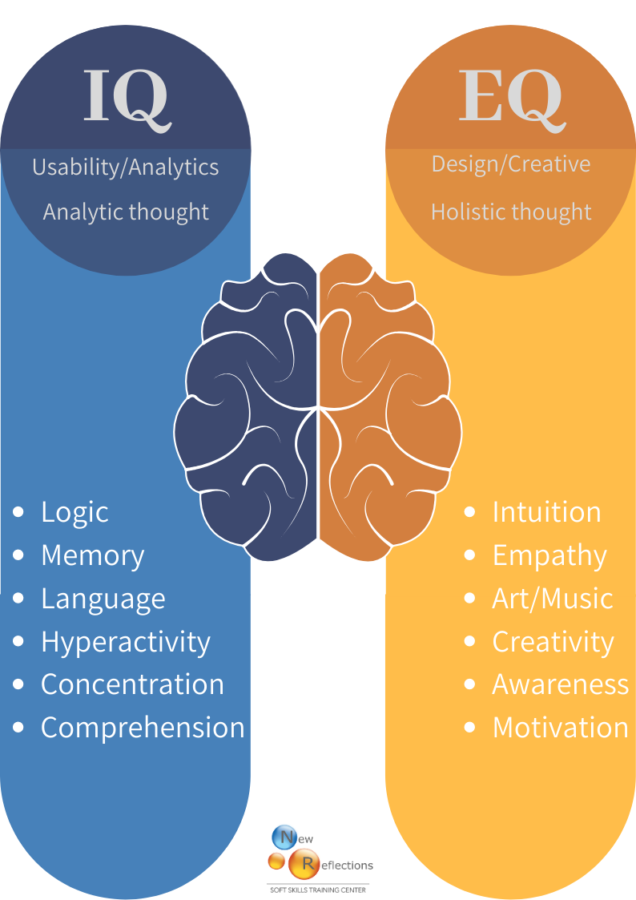Emotional Quotient vs. Intelligence Quotient
While I.Q. is the ability to obtain knowledge and apply it to solve problems, E.Q. represents how someone can apply emotions to the real world and those around them.
June 7, 2022
Have you realized that whenever anyone talks about college applications, it is all extracurriculars, service hours, and involvement in outside programs or internships? What happened to honors or AP classes, GPA, or SAT and ACT scores. Well unfortunately, in this day and age, everyone is scoring 1400s on the SAT and taking 8 AP classes. People simply do not stand out anymore by having a 4.6 GPA. Colleges want more than just academic success. They want to know the type of person who will be representing their school on an emotional level.
Although good grades help for getting into college, they do not define who you are as a person. When you are given a college essay to write, it is not going to ask about all of your academic achievements. It may ask something along the lines of a life changing moment that shaped who you are today. In modern times, colleges care more about your E.Q. (emotional quotient) rather than your I.Q. (intelligence quotient). But why has this change occurred?
The answer is very simple: having a high E.Q. will lead to a greater chance of success than having a high I.Q. In simple terms, E.Q. is how well one can use their emotions to understand, use, and manage their own emotions in a positive way. (HelpGuide.org) Having high E.Q. means you have high self-awareness, self-management, and social-awareness. Essentially it means you are likable and easy to work with because you understand what is going on around you, as well as understanding yourself. So why is this so much better than having a high I.Q.?
Having a high E.Q. means you are able to adapt and deal with negative emotions that could affect your everyday life. This skill is very important throughout life, but it is especially important in college. For many, going to college is one’s first time living on their own, and they do not have people like their parents to rely on and navigate them in everyday life. To be able to manage your emotions in an effective way that will not disrupt learning is an especially desirable skill that colleges seek. To be able to separate work/school life from personal life is one of the most valuable skills that can differentiate someone from other applicants.
One’s E.Q. can also be used to indicate how well someone will be able to work with others. Collaboration and teamwork are skills that are guaranteed to be used in many aspects of life, from the workplace, in a family, and in relationships. While I.Q. is used to determine someone’s academic capacity, E.Q. can be used to gauge someone’s ability to be a leader, an efficient team member, or someone who is simply better off working on their own. In college, teamwork is more important than ever. It is the trial run to see if the career you want in life is the one for you. You will have to work with others on projects related to your major that can help determine if the path you chose is really the parth for you.
Camille Khong (11) highlights the importance of one’s E.Q., saying that
“
”Colleges measure one’s E.Q. through extracurriculars and college essays, which is why those two factors are some of the most important things that go into a college application. Volunteer work outside of school and club engagement inside school shows how connected a student is with their community and environment, as well as showing colleges that you have been exposed to real life experiences and have worked with others in a healthy environment.
This does not mean to neglect grades. Of course every basis of a college application is your grades. Extracurriculars and the college application is how you sell yourself to the colleges and say “hey, choose me!”. However, when it comes down to it, the E.Q aspects outweigh the I.Q. aspects because E.Q. is the most accurate and best way to estimate someone’s success.





































